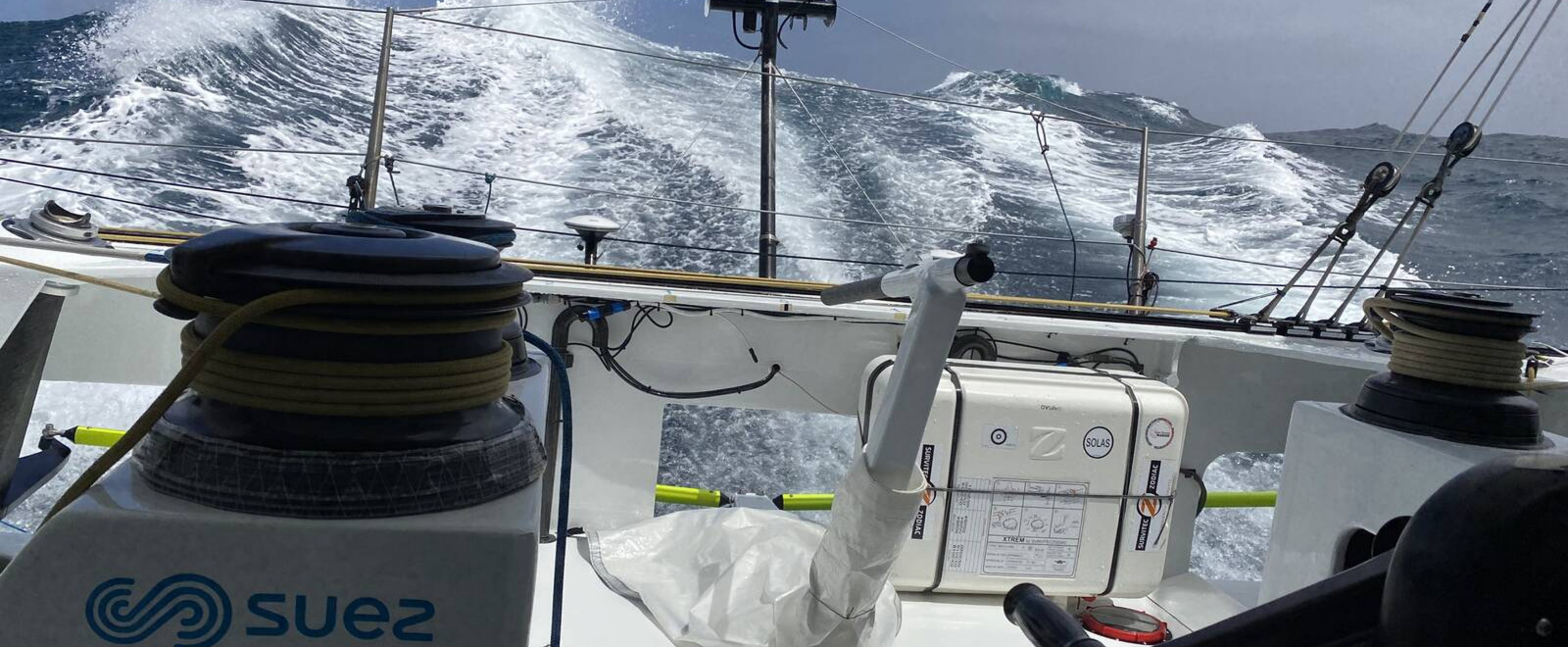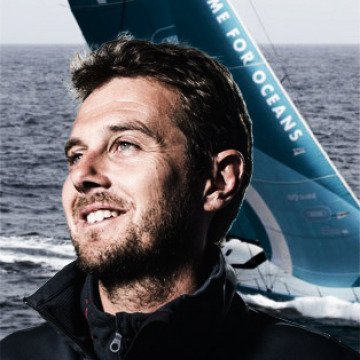Stephane Le Diraison, Time for Oceans, "
“This is a real Pacific we are having, one that does not carry its name well, it is quite harsh for the six boats among which I am sailing. I have had three reefs in my main sail for a week and for the past 48 hours have had my storm sail up. Yesterday I think I got the worst of it with winds reaching 60 knots and waves with troughs of six to eight metres.
The memory of it will stay with me for life. I have this image of a squall in 60 knots of wind, breaking waves, no sail up, the boat on its side and a snowstorm with the wind howling in the rig with a total sense of powerlessness in the face of these mad conditions. It is nuts to watch the sea which is white, almost like frothing milk and spray coming from all angles. It is quite incredible. I am happy to have experienced it, it is quite an experience on a human level to have come through this, particularly physically, because it is so cold, but also on a mental and nervous level, it is extremely demanding.
It is so cold, you just wrap up with all you have, there is just four degrees inside the cabin and then you hear the waves breaking on deck or being knocked down by a wave and you have to get dressed in the wet clothes and go out in the middle of the night. It is then that you have to just not think about it or question yourself. That is why I like that expression you just have to disconnect your brain, to concentrate on what needs to be done. Get out of the bunk, get dressed and go through the list of things that need to be done and leave the analysis of it all for later.
The night is hard because you can’t see the squalls and the waves, so you do not feel like you are in control of the situation. The technique I have for disconnecting is based on meditation. I try and centre my focus on the moment and try and avoid all the bad thoughts that surround this. Obviously negative thoughts come in such as feeling cold and so on, but you push these aside to deal with the priorities you have such as going to have to put in a reef and just handling the boat. You have to train yourself to do this, it does not come automatically, and you then become like a soldier in action and not one in contemplation.
It was impossible to get sleep in the heart of the storm, which lasted for around fifteen to twenty hours, because you nosedive into waves and you just get thrown about and can’t be in your bunk. The one time I tried to lie down I got throw up against the mast. You know it is coming and so you prepare and anticipate by accumulating sleep in the days before, more than you would normally when racing, and then you just have to dig deep into your energy reserves. I am tired and less sharp and so I am sailing more carefully and what is keeping me motivated is that in fifteen hours I will get into my bunk, get some rest and will not worry too much about losing a few miles, I will need to think about recovering a bit first.”







